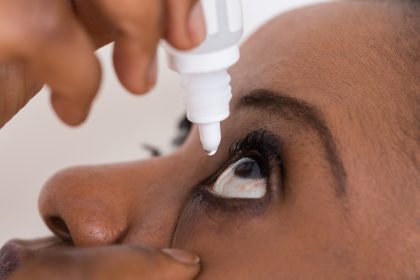Waking up with crusty and red eyes can be an unsettling experience. While it might seem like a minor annoyance, it can be a symptom of underlying health issues that need attention. Many people dismiss this condition — attributing it to lack of sleep or allergies — but it’s crucial to understand the potential causes and consequences. Ignoring these signs can lead to more severe problems that could affect your vision and overall health. This article will explore why you shouldn’t ignore waking up with crusty and red eyes, the possible causes and how to address them effectively.
Understanding the causes
Conjunctivitis
Conjunctivitis — commonly known as pink eye — is one of the most common causes of waking up with crusty and red eyes. This condition is an inflammation of the conjunctiva, the thin, clear tissue that lies over the white part of the eye and lines the inside of the eyelid. Conjunctivitis can be caused by bacteria, viruses, allergens or irritants. It often results in redness, itching and a crusty discharge that can make your eyes stick together when you wake up.
Blepharitis
Blepharitis is another condition that can cause crusty and red eyes. This inflammation of the eyelids is often due to clogged oil glands near the base of the eyelashes. Blepharitis can be associated with other skin conditions — such as dandruff or rosacea — and often leads to flaky skin on the eyelids, redness and a gritty sensation in the eyes. If left untreated, blepharitis can cause chronic discomfort and even lead to more severe eye infections.
Dry eye syndrome
Dry eye syndrome occurs when your eyes do not produce enough tears or the quality of tears is poor. This can result in irritation, redness and a feeling of grittiness. Upon waking, you might notice crusty residue due to the lack of lubrication overnight. Factors contributing to dry eye syndrome include aging, environmental conditions and prolonged screen time.
Allergies
Allergies are a common cause of red and crusty eyes. Pollen, pet dander, dust mites and other allergens can irritate the eyes, leading to redness, itching and discharge. People with seasonal allergies might notice these symptoms worsening during certain times of the year. Antihistamines and other allergy medications can help alleviate these symptoms.
When to seek medical attention
Persistent symptoms
If you notice that your eyes are consistently red and crusty in the morning, it is essential to seek medical attention. Persistent symptoms can indicate a chronic condition that requires treatment. Ignoring these signs can lead to more severe eye problems, including infections and impaired vision.
Severe pain and vision changes
Experiencing severe pain, significant changes in vision or sensitivity to light — alongside crusty and red eyes — should prompt an immediate visit to an eye care professional. These symptoms can be indicative of serious conditions such as keratitis or uveitis, which require prompt medical intervention to prevent lasting damage.
Unusual discharge
While a small amount of crusty discharge in the morning can be normal, an unusual amount of discharge — especially if it is green or yellow — can signify a bacterial infection. Bacterial conjunctivitis, for instance, requires antibiotic treatment to prevent the infection from spreading and causing further complications.
Preventive measures and treatments
Proper hygiene
Maintaining proper eye hygiene is crucial in preventing conditions that cause crusty and red eyes. Wash your hands frequently, avoid touching your eyes with dirty hands and ensure you clean your face thoroughly before bed. If you wear contact lenses, follow the recommended cleaning and replacement schedule.
Using artificial tears
For those suffering from dry eye syndrome, using artificial tears can provide relief by keeping the eyes lubricated. These over-the-counter drops can be used several times a day to maintain moisture and reduce irritation.
Managing allergies
If allergies are the cause of your symptoms, managing your exposure to allergens can help. Use air purifiers, wash bedding frequently and avoid outdoor activities during high pollen seasons. Over-the-counter or prescription allergy medications can also alleviate symptoms.
Warm compresses
Applying warm compresses to your eyes can help with conditions like blepharitis. The heat can loosen clogged oil glands, reducing inflammation and crustiness. This simple home remedy can be effective when done regularly.
Importance of addressing crusty and red eyes
Waking up with crusty and red eyes should not be ignored. While it can be tempting to dismiss these symptoms as minor, they can be indicative of underlying conditions that require attention. From conjunctivitis to allergies, understanding the causes can help you take appropriate action. Maintaining proper eye hygiene, seeking medical advice when necessary and using preventive measures can keep your eyes healthy and prevent more severe issues in the future. Prioritizing eye health is crucial for overall well-being and quality of life.
This story was created using AI technology.
















